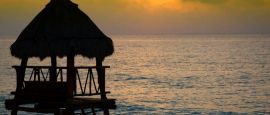Jamaica History, Language and Culture
History of Jamaica
Before Columbus discovered it in 1494, modern-day Jamaica, then known as Xaymaca, had been peacefully inhabited by the native Arawak Indians for about 2,000 years. All of that changed in an instant as the Spanish swiftly colonised the island, driving the Arawaks out, replacing them with slaves from Africa and holding control of Jamaica until the mid-17th century.
The Spanish left Jamaica in 1655, in the wake of British pirates and settlers who turned Jamaica into the most important of the British Caribbean slaving colonies. The new capital Kingston soon became a vital point of the vicious trade triangle bringing many thousands more slaves to the island from Africa and exporting rum and sugar back to Europe. Even today no other island in the Caribbean feels its bonds with the African continent more keenly, and for the past centuries it has defined the island’s very culture. It was a key event in Jamaican history therefore, when, in 1834, slavery was abolished, a date considered to be the birth of the modern nation.
Jamaica remained a British crown colony, however, and it was not until the early 20th century that rising independence movements began to gain momentum. The 1920s saw the rise of black political activity as Jamaica’s second-most-famous-son Marcus Garvey founded the ‘Back to Africa’ movement, which encouraged Jamaicans to return to their homeland. The Rastafarian religion grew out of this movement after the now-deceased Haile Selassie was crowned King of Ethiopia. Believers consider Selassie to be a messiah who will return Jamaicans to Africa and bestow upon them peace and prosperity.
Jamaica was finally granted independence in 1962, remaining a member of the Commonwealth. This was the decade that saw the blossoming of reggae, the musical message that put Jamaica firmly on the map with the arrival of the legendary Bob Marley. Since independence, the political arena has been dominated by the struggle between the right-wing Jamaican Labour Party (JLP) and the leftist People's National Party (PNP). The economy has been boosted by a recent rise in tourism, which accounts for some 60% of GDP.
Did you know?
• Ian Fleming wrote ten of his James Bond spy thrillers at his home in Jamaica.
• Jamaica’s original Arawak inhabitants named the island Xaymaca, which means “land of wood and water”.
• Jamaican sprinters have dominated world athletics since 2005, when Asafa Powell set a new 100m Olympic record, which was subsequently beaten by Usain Bolt.
Jamaica Culture
Jamaica has the most churches per capita of any country in the world. Protestant majority (Anglican, Baptist, Church of God and Methodist) with Roman Catholic, Jewish, Muslim, Hindu and Bahai communities. Rastafarianism, a religion based on belief in the divinity of the late Emperor of Ethiopia, Haile Selassie (Ras Tafari), is also widely practised. Jamaica also has a number of small spiritualist cults.




 You know where
You know where
